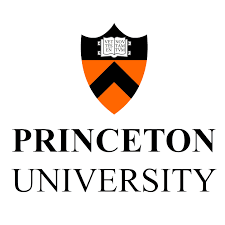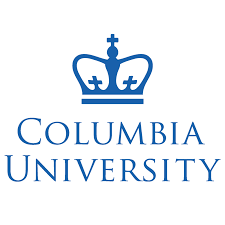20 Best Doctor of Chemistry (D.Chem) Graduate Schools

Find your perfect college degree
Did you know that chemists and chemistry students celebrate Mole Day? No, it isn’t about moles but Avogradro’s number. Thus, the celebration occurs every October 23rd from 6:02 a.m. to 6:02 p.m. Then, there’s also the National Chemistry Week every third week of October which celebrates the vital role of chemistry in our society.
The Doctor of Chemistry degree is a terminal degree in the field of Chemistry that focuses on advanced topics and research-based studies. It is specifically designed for individuals who wish to become experts in the field of Chemistry and pursue academic and research leadership positions. This doctoral program focuses on the development of researchers’ skills that are critical for the successful management of teams in both academia and industry, emphasizing modern research methods and laboratory management.
By using cutting-edge technologies and novel experimental approaches, graduates can become well-rounded scholars and experts in the field. Through independent research, complex problem-solving, and collaboration with other researchers, graduates of this program are able to contribute to the development and understanding of Chemistry to the highest possible standards.
Quick audio summary:

Indeed, chemists who pursue a doctorate in chemistry have plenty of reasons to celebrate their choice of a profession! Students in these doctorate programs must have a keen interest in chemistry’s theoretical and practical applications through research. These are rigorous programs with a combination of advanced academic coursework and a research component, meaning admission is a selective process.
Students must also possess personal and professional traits vital for success in the doctorate program and workplace. These include effective skills in analysis, critical thinking, communication, and math and science skills. Organizational, problem-solving, and time-management skills are also crucial.
Become a Chemical Engineer:
METHODOLOGY
The universities offering on-campus or hybrid doctorate in chemistry programs listed here have been chosen based on these aspects:
- Valid university-wide accreditation from a regional accreditation agency recognized by the US Department of Education,
- Reputation for academic excellence as measured in terms of selective admission, learning outcomes, and graduate outcomes (i.e., employability),
- A roster of faculty members with advanced professional credentials, including relevant terminal degrees in chemistry and related subjects,
- Satisfactory excellent student support services,
- Relevant curriculum that’s updated to reflect the trends and discoveries,
- State-of-the-art research facilities that allow students to develop their advanced research skills and gain hands-on experience,
- With sufficient financial assistance options.
20 BEST DOCTOR OF CHEMISTRY GRADUATE SCHOOLS
The University of Mississippi

Oxford, Mississippi
Ole Miss, the flagship university of The Magnolia State, is known for the quality of its research projects through its various research centers and institutes. Students in its Ph.D. in Chemistry program also participate in many research projects in their advanced education.
The program is designed for chemists and other professionals whose career plans include employment in academia, government research labs, and industrial companies, among other entities.
- The minimum total credit hours required is 54 credits. The compulsory credit hours include three hours of Chem 700, three hours of Chem 750 and 759, 18 hours of lecture courses, and 18 hours of Chem 797 (dissertation).
- Students choose one core course in four of the five areas of specialization. Analytical Chemistry, Biochemistry, Inorganic Chemistry, and Organic Chemistry are among these areas. The minimum grade for each course is “B” for the cumulative average grade for all courses taken.
- There are four cumulative exams, a final oral exam, and a presentation and defense of the dissertation that a student must pass.
- Three seminar presentations are also required. There’s the initial oral presentation, the poster presentation for the research, and the final seminar for the completed dissertation. Every seminar will be evaluated by the evaluators depending on the venue.
- Students must possess excellent English language skills since these are crucial in the design of the dissertation.
Standout Features:
Ole Miss UM Advantage philosophy – the synergy of talents resulting in innovations – underlines many of the student’s research activities. The program emphasizes student-led research projects’ economic applications and social impact, although these aspects may not be immediately evident. Also, the Ph.D. program incorporates medicinal chemistry into the curriculum.
While the origins of “Hotty Toddy” are unknown, and these have no known meaning, it’s a common campus greeting and is on the school fight song. This may well be a common refrain during the university’s elaborate tailgating tradition at the Grove.
University of North Dakota

Grand Forks, North Dakota
UND, PeaceGarden’s oldest university, may have started as a liberal arts school, but it has since evolved to become a preeminent public research university. From its spacious 521-acre campus, its influence in medicine, engineering, and aviation, including space explorations, is known worldwide.
Students in UND’s Ph.D. in Chemistry program also have the opportunity to make their mark in research! UND’s Chemistry Department is engaged – and amply funded, too – in a broad range of research from computational studies to nanoscience. Aside from participation in faculty-led research, students also contribute their original research.
- The program consists of 90 credit hours consisting of classroom instruction and interdisciplinary research. Course titles include Chemical Dynamics, Quantum and Computational Chemistry, Analytical Spectroscopy, and Special Topics in Physical Chemistry.
- The average completion time is 4.5 years, although it will vary between students depending on their course load and the pace of dissertation progress.
- Students learn advanced skills in designing, implementing, and interpreting experiments, developing their oral and written communication skills in writing and presenting technical topics, and conducting innovative research in interfacial areas. Research topics include renewable materials, atmospheric chemistry, and polymerization catalysis.
- Benefits include teaching assistantships with financial support, presenting research at conferences, and access to advanced instrumentation.
Standout Features:
UND’s chemistry program ensures that students get the best support possible to achieve their goals. Breakthrough research in diverse fields is welcome with the research studies published in prominent scientific journals. Internships are also encouraged since these provide exceptional hands-on experience.
The Fighting Hawks are crazy about ice hockey! For good reasons, too, because the men’s ice hockey team, which plays at the Ralph Engelstad Arena, has eight national championships. Beyond the arena, UND has a beautiful campus praised for its wide-open spaces and gorgeous buildings.
University of California – Berkeley

Berkeley, California
UC Berkeley’s College of Chemistry is cited by the 2020 US News and World Report as the best international university for chemistry. The college grants doctorate degrees to an average of 80 students every year, hosts nearly 50 respected multi-awarded researchers, and produces numerous research papers.
Indeed, your admission into its Ph.D. in Chemistry program may well be among the highlights of your career!
- This is a highly selective program that receives an average of 800 applications every year. The Graduate Division determines the annual allotment, and it will reject even qualified candidates if the yearly allotment has been filled.
- Students choose from three concentrations – Physical Chemistry, Synthetic Chemistry, and Chemical Biology.
- Candidates can only be accepted during the fall semester (i.e., no spring and summer admissions).
- Admission requirements include official transcripts, three letters of recommendation, a statement of purpose, and a personal history statement.
- Candidates must have a 3.0 GPA (minimum) to be considered for admission.
- The course load every semester varies depending on the concentration and the student’s specific interests. Students in Physical Chemistry may enroll in two courses every semester, while students in Synthetic Chemistry will have one course but attend more seminars. Many students also take courses outside of the College of Chemistry.
- Students receive stipends via assistantship arrangements as well as full tuition aid and medical insurance.
Standout Features:
Every student has a customized program of study depending on their chosen concentration and professional interests. There’s a strong emphasis on creative scientific research, and, thus, students are provided with the best possible support for their research.
Students spend their first week in the program meeting with their faculty advisers, choosing their research directors, and selecting topics for their research projects. By the end of their first semester, students are already engaged in team-based research and have started on their projects. Learners must also pass the qualifying exam during their second year and become teaching assistants for two semesters.
UC Berkeley scientists co-discovered berkelium and seaborgium. Their success wasn’t due to rolling down 4.0 Hill or rubbing the 4.0 Ball, which students do before exams for good luck.
New York University

New York City, New York
Students at NYU will never become bored with its large student body, proximity to the Big Apple’s social hubs, and numerous on-campus amenities. While it’s the country’s largest private university by enrollment, it’s considered a highly selective university! Getting into the Ph.D. in Chemistry program is no easy feat.
Note that the Ph.D. degree is a research-intensive degree and, thus, students must have the capacity to conduct independent research. The research project itself must showcase its author’s comprehensive and advanced understanding of chemistry and its applications in the modern world.
- The program requirements include completion of at least 72 credits from academic courses and research work. Of these credits, a minimum of 32 credits must be completed in residence at NYU. At least 20 credits must come from academic coursework with a minimum cumulative 3.0 GPA.
- Students must maintain a B-grade in all courses to maintain their good standing and continued enrollment.
- Compulsory courses include Professional Development in the Sciences, Graduate Seminar, and Original Research Proposal.
- Students must attend 20 colloquia, minimum, as part of their graduation requirements.
- Laboratory research experience is a must, too, during the first semester.
- Students must pass several exams, including a Ph.D. qualifying exam and an original research proposal exam, and attend a departmental seminar. There’s a written exam and oral presentation for the dissertation component, and the latter is open to the public. Pass/fail is the only grade here.
Standout Features:
Due to the diversity of backgrounds among students, each student will formulate an individualized program of courses in coordination with the Director of Graduate Studies. Students also choose their research advisor as early as the end of their first year of residency.
NYU’s student body is so diverse that nearly a quarter are non-US citizens! In fact, it has the highest population of international students of all schools in the country. But NYU also sends the highest number of its students abroad. Aside from its main campus in Manhattan, it also has Shanghai and Abu Dhabi campuses, among other locations.
Princeton University

Princeton, New Jersey
Princeton University, an Ivy League R1 research university, is a highly selective university with a 5.8% acceptance rate but its graduation rate of 98% is among the highest in the country. The high graduation rate is due to the fact that Princeton has the lowest tuition rate of any Ivy League university!
The contrast in numbers also applies to the Ph.D. in Chemistry program administered by the Department of Chemistry. Every candidate is evaluated according to high standards, including academic records, professional experience and background, and commitment to Princeton values.
Students and faculty members conduct their didactic coursework and research activities at the Frick Chemistry Laboratory. Collaborative research projects are characterized by their interdisciplinary approach.
- Students complete the degree requirements in five years, although actual completion times will vary between students. The five-year duration covers academic coursework and the dissertation phase.
- Candidates must submit a complete application packet containing official transcripts, a statement of purpose, a resume, and recommendation letters.
- GRE scores are optional but are recommended for consideration.
- Candidates may also submit a 500-word statement about their possible contributions to Princeton and society through academic, life, and work experiences.
- Permanent courses include Surface Science: Processes and Probes; Responsible Conduct of Research in Chemistry; Basic Principles of Quantum Mechanics; and Advanced Quantum Chemistry.
- Students must take six courses and earn at least a 3.0 GPA in each course.
- Qualifying exams and a general exam are also required.
- The graduate degree will be recognized after the completion of the student’s doctoral dissertation.
Standout Features:
Princeton encourages its Ph.D. in Chemistry students to pursue an individualized program of study based on their particular academic background and professional interests. The degree is awarded primarily based on the student’s original research in a specific area of chemistry, and the work starts during the first year of admission.
In the past, the freshmen and sophomores engaged in the Cane Spree, where a representative from each class wrestled to control a cane. While the Cane Spree has been prohibited, the sedate tradition of walking through the FitzRandolph Gates at graduation has remained.
Brigham Young University

Provo, Utah
BYU, a private research university with sponsorship from the LDS Church, spends millions on research and development projects. Many of its alumni are among the best in the country, too, with their breakthrough inventions like electronic television, stereophonic sound, the man-made diamond, and the Magnetic Lasso algorithm. Students must agree to an honor code that emphasizes academic honesty.
Said honor code also extends to Ph.D. in Chemistry students whose research work undergoes a rigorous evaluation.
- The 54 credit hours required for earning the degree consist of 36 hours of graduate-level didactic coursework and 18 credit hours of research and dissertation work. If you have a master’s degree in chemistry, you may apply for a transfer of credits and have it approved by the department.
- Students must pass an oral comprehensive exam aside from a series of exams, semi-annual progress reviews, and presentations of research projects and dissertations. The final oral exam has two parts – a public presentation and a comprehensive exam.
- GRE scores are a must for students applying for graduate fellowships.
- Learning outcomes include the ability to evaluate studies in chemistry critically, proficiency in the techniques and technologies of laboratory work, and advanced-level research skills.
Standout Features:
Students choose from four areas of emphasis – physical, organic, inorganic, or analytical chemistry – but must also gain a comprehensive understanding of chemistry at advanced levels. The Ph.D. degree is centered on the research project and dissertation as well as its place in the current body of knowledge.
There’s a giant Po statue at the Talmage Building! Yes, Po the Panda from the Kung Fu Panda movie franchise. BYU isn’t just about the whimsical touch either, as it has the deepest respect for other religions aside from its Mormon faith. There’s a room at the Wilkinson Student Center reserved for Muslim prayers at specific times.
Brown University

Providence, Rhode Island
Brown has a long history of academic excellence in the doctorate department. The Ivy League university was, after all, among the first institutions in the US to offer doctoral degrees in 1887! And when it comes to chemistry, it’s also notable for its contributions to the field with a Nobel laureate – Lars Onsager (Chemistry, 1968) – to boot.
But getting into Brown isn’t an easy achievement either since it’s among the most selective universities with an acceptance rate of 5.4% (undergraduate). The Ph.D. in Chemistry program also has the same high academic standards, as it befits an advanced/terminal degree. Students become part of a long-standing tradition of cutting-edge scientific research in chemistry, from physical to nanochemistry.
- Students complete four courses during their first semester after admission but may choose not to become a teaching assistant yet. Choosing a research adviser also happens at this time, and fellowship support is provided.
- Learners start working on their research project in their second semester, including the choice of topic. During their last semesters in the program, students focus on their research projects.
- The completion time ranges between four and five years.
- Students must be teaching assistants for one academic year during their stay.
- Research activities are typically conducted at the department’s state-of-the-art laboratory building. Students can access a wide range of mass spectrometers, laser systems, and networked workstations and computers, among other equipment.
- Only a bachelor’s degree in chemistry or its equivalent is required. Extensive work experience, including laboratory experience, is an edge.
Standout Features:
Students will only be granted the doctorate upon completion of a series of requirements. These include seven lecture-based courses, research-related literature reviews and seminars, and a series of oral defenses for the research proposal.
The Van Wickle Gates are only open during the Convocation (inwards) when first-year students are welcomed and during the Commencement (outward) when the seniors pass through. Bad luck will hound any Brown student who passes through the gates more than two times!
Johns Hopkins University

Baltimore, Maryland
JHU, the country’s first-ever research university, continues its long-standing tradition of excellence in education and research in its Ph.D. in Chemistry program. In fact, it’s the first Ph.D. in Chemistry program in the country! Students and alumni possess a strong desire to contribute to the advancement of chemistry and scientific knowledge.
- Students advance in the program through entrance exams, oral exams, academic coursework, and teaching assistantships and seminars. The crown jewel is an individual research project resulting in a dissertation.
- Students work either with a team or with a faculty member to formulate the thesis project until its approval by a thesis panel. The dissertation must also be worthy of publication.
- Each student has an individualized program of study based on their specific educational and professional background, interests, and other factors.
- The curriculum consists of six courses taken over one semester, covering advanced topics in chemistry and related sciences. Three are core courses, and the minimum overall grade is B (3.0) to be retained in the program.
- Attendance in seminars, an oral examination to determine relevant knowledge, and a one-year teaching assistantship are required.
- The application packet includes transcripts, a statement of purpose, three letters of recommendation, and a professional resume. Admission is highly selective.
- Financial aid is available through fellowships, research and teaching assistantships, and the Vivien Thomas Ph.D. Scholars program.
Standout Features:
Each student can rely on thoughtful one-on-one academic advice from their academic and research advisers. JHU offers several student support services and outlets for development, too. The Pathways to Your Career Seminar Series are venue for networking and getting information about job opportunities. Organizations like ACS, APS, and ASBMB welcome graduate students, too.
In 1879, Ira Remsen and Constantine Fahlberg discovered a new sweetener – saccharin. Remsen was the first chemistry professor at JHU, and Fahlberg was a post-doctoral fellow. Peter Agre, the current director of the Johns Hopkins Malaria Research Institute, won the 2003 Nobel Prize in Chemistry.
Florida Institute of Technology

Melbourne, Florida
Florida Tech, a private research university, earns glowing grades in academics, faculty, and student life, as well as its value for the money. No wonder that its Ph.D. in Chemistry attracts the cream of the crop from across the US and the world!
- Students complete 72 credits beyond the baccalaureate degree when they have complied with the program’s requirements.
- Formal courses comprise 18 credits, minimum, while dissertation courses must be at least 15 credits. The required credits for research courses range from three to 27.
- Students with a master’s degree may use the earned credits instead of the 18 credits of formal courses. Additional coursework, however, may still be required. Candidates may also apply with a bachelor’s degree but with outstanding academic performance, among other admission factors for evaluation.
- The application packet must contain transcripts, resumes, personal statements, and letters of recommendation. GRE scores are optional but are recommended.
- Students will only be considered for graduation upon completing the approved coursework, written exams, and comprehensive oral exams. Each student’s dissertation will also be evaluated for originality and other criteria as part of the completion process.
- Professors invite students to become part of their research team and provide them with guidance in the process.
- Internships and other external collaborations are common experiences that may result in international travel opportunities.
- Most research activities are conducted at the 70,000-square feet F.W. Olin Physical Sciences Center. Students can access state-of-the-art facilities, including spectrometers and computational chemistry equipment.
Standout Features:
FloridaTech’s partnerships with several research-centric institutions, such as the Harbor Branch Oceanographic Institute and Kennedy Space Center, benefit graduate students. For this reason, assistantships, internships, and peer networking are in abundance in and outside of the university.
Come to FIT’s annual Homecoming Fest and binge on food and drinks while listening to an outdoor concert! The International Festival is also a venue for enjoying life away from the stress of intense academics.
Columbia University

New York City, New York
Columbia, an Ivy League school, is among the best universities in The Empire State for studying chemistry. Students thrive in a conducive academic and research environment characterized by excellent support from faculty members and scientific challenges. The dynamic environment encourages a balance between independent research and collaborations with a team, a balance also found in professional settings.
The Ph.D. in Chemistry program awards the highest possible degree in chemistry. Candidates must then be among the best of the batch to be accepted and thrive in its challenging environment.
- First-year students spend most of their time on academic coursework. But as they progress in the program, their focus will be increasingly on their respective research project and dissertation.
- Each student has a customized program of study determined based on their academic and professional backgrounds and other factors.
- Each faculty member has the opportunity to discuss their research projects during the first-term colloquia. Students attend these colloquia, discuss their options with at least three faculty members, and choose their sponsor or adviser afterward.
- Five years after the admission date is the time limit for the defense of a dissertation.
- Columbia awards about 25 Ph.D. in Chemistry degrees every year, a very high completion rate considering the selective process.
- Students, faculty members, and professional researchers in chemistry conduct research at the Havemeyer Hall, Chandler Laboratories, and Havemeyer Addition.
- Teaching apprenticeships along with research assistantships are part of the program.
Standout Features:
Columbia is a dominant figure in chemistry, with more Ph.D. graduates and faculty members than other universities. But the university isn’t just about the quantity but, more importantly, the quality of its graduates! Its Ph.D. The chemistry program has a lively atmosphere underlined by intellectual discourse and academic excellence.
Students are eligible for fellowship awards and receive tuition assistance, a living stipend, and health insurance.
In 1975, the Columbia University Marching Band marched into the Butler Library’s main undergraduate reading room and played raucous music. Their repertoire varies, but it always starts and ends with the university’s fight song. The purpose: To provide comic relief for students who have been neck-deep in their books for the final exams. The Columbia University Orchestra agrees!
University of South Florida

Tampa, Florida
USF is a preeminent public research university in The Sunshine State known for its robust support for student research. Such is its research focus that it’s among the universities with the most US utility patents! The USF Research Park is one of many research centers that the USF takes advantage of in its cutting-edge research in diverse fields.
Among these fields is Chemistry, where innovative research projects are conducted at CITRUS, CDDI, CMD5, and SMMARTT. Students enrolled in the Ph.D. in Chemistry program may be invited to join many of these projects as part of their laboratory training.
- The total minimum hours are 72 credit hours beyond a bachelor’s degree or 42 credit hours beyond a master’s degree.
- The curriculum is composed of nine credits for core courses, 61 for additional coursework, and two for dissertation. Electives are also required for program completion.
- Students must complete the degree requirements within seven years after the date of admission.
- Graduate-level courses may be taken from departments other than the Chemistry Department, a hallmark of USF” interdisciplinary approach to graduate studies.
- Students must pass the qualifying exams, the ORP exam, and the oral defense of a dissertation.
- Many research opportunities abound in specialized and interdisciplinary areas like chemical education, drug discovery and delivery, and marine chemistry.
- Candidates must at least have a bachelor’s degree in chemistry and meet requirements in general admission and English proficiency.
- Three letters of recommendation and GRE scores – at least 149 V and 147 Q – are required, too.
Standout Features:
The program has an exclusive focus on innovative research in chemistry and the chemical sciences. Students thrive in the competitive program due to the academic support from the Ph.D.-holding, full-time professors.
USF is so named because, in the late 1950s, it was the southernmost state university in the Sunshine State. Florida residents 60 years old and above are allowed to audit – or attend for free – undergraduate and graduate courses.
Massachusetts Institute of Technology

Cambridge, Massachusetts
MIT’s prestige as among the world’s best educational institutions is backed by its successes in the field of science and technology! The chemistry department is among its most notable, with three Nobel laureates and a Wolf Prize awardee. Indeed, earning MIT’s Ph.D. in Chemistry degree isn’t just about prestige but about making your mark in the world!
- Students are only admitted during the fall term or in September every year.
- The admission process is highly selective, with candidates evaluated holistically. Academic track record is as important as the statement of purpose, letters of recommendation, and work experience in chemistry.
- Candidates with only a bachelor’s degree, either in chemistry or an unrelated field, may apply since the only academic requirement is a bachelor’s degree. However, candidates must have a substantial background, including work experiences in chemistry, to be considered.
- Participation in laboratory research and extensive classroom experience in teaching chemistry and other related subjects are viewed favorably. At least two years of intensive laboratory research experience is recommended to be considered as a strong candidate.
- No transfer of credits is allowed. All students must complete the program requirements.
- Students receive full tuition coverage and a monthly stipend during their first year. Funding for subsequent years is subject to fund availability.
Standout Features:
There’s no specific program of study! Students work with their academic advisers and research supervisors in planning an individual program of study according to their research interests. In general, students in the Ph.D. in Chemistry program complete 48 units, minimum, with grades of at least B- for all courses.
Being a teaching assistant for their first year (two semesters) is required, too. Exit interviews are done before graduation.
MIT doesn’t grant Latin honors to its students, so the fictional TonyStark’s summa cum laude honors from MIT are also fictional. But what’s true is that Whirlwind I, the first computer in Cambridge, was invented by MIT and can be seen at the MIT Museum.
Portland State University

Portland, Oregon
PSU, a public research university originally established for WWII veterans, has an urban environment that appeals to graduate students who want proximity to their workplaces. Students in its Ph.D. in Chemistry from its supportive environment, state-of-the-art facilities, and opportunities for collaboration.
- The on-campus program requires students to complete the academic requirements of 81 credits to earn the terminal degree.
- Of these, at least 45 credits must be in approved graduate courses. Of the 45 credits, at least six must be outside the student’s major area of interest.
- The fall term is the only start date and, thus, an annual cohort will only be accepted at this time.
- There are few formal requirements since each student has a specific program of study based on their preferred area of specialization. A series of entrance exams are administered to students before their first term, and these entrance exams are conducted to evaluate their preparedness. These exams cover five areas – organic, inorganic, biochemical, physical, and analytical chemistry. Any three of these five exams must be successfully passed by the end of the third in-residence term.
- Comprehensive exams and a prospectus exam must also be passed.
- Students, nonetheless, follow the traditional research-centric format of post-graduate programs. Coursework, research, and dissertation courses are in the curriculum. (Students in the Ph.D. in Chemistry Education Research must take additional coursework).
Standout Features:
With PSU set within Oregon’s center, students have plenty of opportunities to connect with the external community while engaging in research collaborations with the on-campus community. PSU’s strong ties to the research communities on the local and state levels also mean more research collaborations between students and these entities.
The South Park Blocks, consisting of 12 blocks lined with gorgeous trees, are the hangout spots for students. Live music, farmers’ markets, and other entertainment options are in abundance here. Indeed, PSU deserves its reputation for being a great neighboring university! Plus, it’s known for its green initiatives and sustainability programs with several LEED-certified schools.
The University of Maryland

College Park, Maryland
UMD, the University System of Maryland’s flagship university and a preeminent public research university, has a dynamic research community. It’s among the most well-funded public universities with a combined annual research funding of $1 billion. The university’s research development services also ensure that researchers, from professionals and faculty to students, have ample support.
Indeed, students in the Ph.D. in Chemistry program have the assurance that their research projects will have sufficient support from the university. The support services available may include hosting seminars and workshops, developing cross-departmental research, and providing research sources.
- The minimum number of credits required is 21 credits of graduate-level coursework.
- Completion of compulsory coursework within the allotted time is required for graduation. Chemistry 611 and 612, for example, must be completed during the first year.
- Seminars and research courses, such as Chem 898 and 899, amount to 14 credits, but not all count toward the required 21 credits.
- Audited courses aren’t included in the credit count.
- Students must pass the oral preliminary exam, which consists of open and closed sessions, regarding the contents of the literature proposal. The grading system is simple – pass, fail, or retake.
- The time limit for completion of the academic requirements is six years. However, students must advance their Ph.D. candidacy by their fourth semester. Missing the deadlines means being placed either on a probationary status or dismissed from enrollment.
- Monitoring of academic progress will be conducted at the end of every semester.
Standout Features:
Faculty members and post-graduate students engage in collaborative research projects with an interdisciplinary thrust. It’s then common to come across research studies on fuel cell research, nanofabrication, and supramolecular synthesis. UMD places great value on emerging areas in chemistry and their possible applications toward the advancement of society.
The Point of Failure is a cursed spot on campus – or so they say! The legend has it that if you step on it, you won’t graduate in four years if you’re an undergraduate. Perhaps it’s safe to say that the UMD researchers who created the Jeopardy-beating computer didn’t step on it.
The University of Nebraska – Lincoln

Lincoln, Nebraska
UNL, the flagship university of the University of Nebraska system and the oldest in The Cornhusker State undertakes research projects with practical applications and economic impact in mind. Said philosophy is also applied in its graduate programs where the “Research First” approach is adopted in the research-intensive coursework.
The extensive training starts during the first year of acceptance when students join several research groups while balancing academics. The students’ on-campus experience becomes more productive with active participation in research-in-action projects and academic coursework. Students have full access to the Hamilton Hall, where the Department of Chemistry is housed. The nine-story Hamilton Hall has research and teaching labs, a wide range of instrumentation and electronics shops, as well as the Nebraska Center for Mass Spectrometry.
- There are three specializations offered – Bioinformatics, Chemistry Teaching at the Postsecondary Level and Environmental Studies. Every student must choose a specialization since their program of study will depend on their choice.
- The application comes with a non-refundable fee.
- Admission requirements include official transcripts, three recommendation letters, and a personal statement. The personal statement must contain information about your research interests, motivation for pursuing the advanced degree, and relevant work experience. GRE subject test scores aren’t required but are recommended for consideration.
- Every student should also identify four professors that they want to work with during the research process.
Standout Features:
Interdisciplinary studies and research collaborations are encouraged among Ph.D. students. The collaborations occur between the Center for Materials and Nanoscience, Center for Environmental Toxicology, and Center for Biotechnology, among other UNL research centers. There’s also the Cancer Center, a joint program between UNL and the University of Nebraska Medical Center.
Post-graduate students may also participate in research projects conducted by the Nebraska Innovation Campus (NIC). This is the venue for UNL and private businesses to engage in innovative projects.
Cornhuskers wasn’t the original name given to UNL students and alumni. In 1899, the team was called Cornhuskers by Cy Sherman, and it stuck. Ironically, the State of Nebraska adopted it as its official nickname in 1945! Former names for the football team included Antelopes, Rattlesnake Boys, and Bugeaters.
The University of North Carolina at Greensboro

Greensboro, North Carolina
Ph.D. in Chemistry and Biochemistry
UNC Greensboro is a standalone public research university within the University of North Carolina system, meaning it can award its degrees. Graduate students find ample support services, including several funding mechanisms from the Office of Research And Engagement. This applies to students in the Ph.D. in Chemistry and Biochemistry program, where research is at the core of their studies.
- Most academic and mentored lab research coursework can be completed in 1.5-2 years or the first three to four semesters of study. Students agree that while the rigorous coursework can be challenging, it’s manageable with time management and the assistance of academic advisers.
- This is a 56-credit-hour program with the passing grade being B average or 3.0 GPA.
- Completion of the program within four or five years means taking between six and nine credit hours every semester. There’s no need for summer enrollment unless you’re planning on graduating in the summer. If you’re planning on summer graduation. You must complete the 1-credit CHE 799 course (dissertation).
- The maximum completion time is seven years.
- Students on teaching assistantships must maintain a 3.0 GPA at all terms to keep their position.
- Required courses include Advanced Medicinal Chemistry, Receptor Biochemistry, and Biochemical Pharmacology and Disease Targets.
- The research courses are Introduction to Graduate Research, Research Problems in Chemistry and Biochemistry, and Dissertation.
- Seminar courses are Literature Seminar and Dissertation Seminar, each equivalent to one credit.
- Students may choose from several research emphases like Biophysical, Integrative Medicine, Synthetic Organic Chemistry, and Chemical Education Research.
Standout Features:
The Department of Chemistry and Biochemistry has maintained an open-door policy that allows students to approach the department head and other officials, including faculty members, at reasonable times. The small size of the student body encourages a tight-knit community where communication and collaboration are crucial to collective success.
Ph.D. students may want to leave apples at the feet of the Statue of Minerva since it’s supposed to bring them good luck during exam time! Coins and notes are also acceptable. For added luck, don’t walk under the clock tower, or else you won’t graduate on time.
Old Dominion University

Norfolk, Virginia
ODU may be less than a century old, but its renowned academic excellence has contributed to its meteoric rise as one of the largest Old Dominion universities. The university’s research teams also receive $88 million in annual funds for its 400+ ongoing projects, many of which are supported by federal grants. Many of these projects are also venues for post-graduate students, including those in the Ph.D. in Chemistry program, to gain hands-on experience in professional research.
There are several other venues for graduate research, too, since ODU has several research centers. These include the Center for Advanced Engineering Environments, Climate Change and Sea Level Rise Initiative, and Virginia Coastal Energy Research Consortium
Virginia Modeling.
- The minimum credit hours earned differ depending on the academic credentials that a student brings into the program. For a bachelor’s degree, it’s 78 credit hours, while it’s 48 credit hours for a master’s degree.
- The application packet contains official transcripts, GRE scores for the aptitude section, a personal statement, and three letters of recommendation.
- Each student should send a writing sample upon which the graduate committee will decide whether remedial writing assistance is necessary. Referrals to the Writing Center will be made, if necessary.
- The general program requirements are satisfactory performance in the core courses and electives; successful completion of the candidacy examination and the dissertation prospectus; and the dissertation itself.
- The core courses include analytical chemistry, biochemistry, and environmental chemistry, to name a few specialized courses. There’s a one-semester teaching assistantship required.
Standout Features:
ODU provides full access to the Chemistry Building with its state-of-the-art scientific equipment like the 400 MHz NMR. Collaborations between students from diverse backgrounds, and even nationalities, are strongly encouraged and supported.
Starting in 2009, the fountain was dyed blue for homecoming. Students also “ride” its lion statue, although it’s strictly prohibited due to the safety risks.
University of Louisville

Louisville, Kentucky
UofL, a 223-year-old public research university, is a Preeminent Metropolitan Research University known for its breakthroughs in medicine. With its R1 status, $170 million in research funding, and $9.4 million in commercialization income, it’s the best place to be for researchers in Kentucky! Who knows? You may well be the next researcher to contribute to its ever-growing list of achievements, including the first artificial heart and hand transplants.
- Thirty semester hours must be completed for this terminal degree. Of these, at least 15 hours must be in chemistry courses.
- The minimum required GPA for continued enrollment is 3.0 on a 4.0 scale.
- Students select their research mentor and dissertation committee during the first semester and by the end of the fourth semester, respectively.
- Candidates must hold a bachelor of arts or a bachelor of science degree in chemistry or another related field to be considered for admission. At least 36 credit hours of chemistry courses are required, too, as background experience in the field.
- Students should pass a minimum of six graduate lecture courses in their first four semesters, except for the summer terms. (Students with a master’s degree in chemistry may be exempted from up to two courses.)
- Cumulative exams, departmental seminars, research proposals, and defense are part of the program of study.
Standout Features:
Breakthrough research resulting in innovations is valued at UofL, and the dynamic research environment fuels it! Graduate students engage in research not just for the sake of complying with program requirements. Instead, the overarching goal is to contribute to the body of knowledge and impact society.
Along this line, every student must ensure that at least one article based on their dissertation will be accepted for publication or published in a peer-reviewed journal. This must occur before the dissertation defense can be scheduled.
UofL has its radio station, and it’s a member of the Public Radio Partnership. The university’s student paper is also notable for its editorial and financial independence.
The University of Texas at El Paso

El Paso, Texas
While the distinctive Dzong architectural style used in many of UTEP’s buildings attracts attention, the university is as Texan as it can get! Even its Ph.D. in Chemistry program reflects the university’s mining heritage – its students are engaged in research projects that mine the economic potential of theoretical and applied research.
- Students must complete 72 credit hours if they have a bachelor’s degree or 42 credit hours if they have a master’s degree within the program. The Graduate Admissions Committee will determine the total number of credits required for graduation for each student based on their academic background. Additional courses may be required depending on every individual’s specific case.
- The 72-credit hours requirement is divided into core graduate courses (15); graduate seminar (1); departmental seminar (5); teaching practicum (2); doctoral research (34); electives (9); and dissertation (6).
- Students must complete five cumulative exams by their fourth semester. There’s also a two-part series of comprehensive exams for an individual research project (Proposal A) and an original research idea different from the research project (Proposal B). Both, however, must be in the same specialized area of chemistry.
- Students must also present their research at a departmental seminar. The completion and defense of their dissertation is the culminating activity before the terminal degree is awarded.
- The application packet contains transcripts, a statement of purpose, a resume, and letters of recommendation. These documents are evaluated to determine suitability for the program. Admission is on a selective basis, and there’s no guarantee of acceptance even when qualified.
Standout Features:
UTEP’s proximity to the US-Mexican border and its large Hispanic student body means its research projects are geared toward these distinct characteristics. Student researchers are encouraged to engage in collaborative research projects with the local community, including its industries. UTEP emphasizes the commercialization of the results achieved by researchers, too.
The nickname “Miners” for UTEP students and alumni wasn’t the original – “Muckers” and “Ore Diggers” came first. The current nickname came fromUTEP’s origins as the Texas State School of Mines and Metallurgy in 1914. Today, Miners use the pickaxe symbol during games.
The University of Rhode Island

Kingston, Rhode Island
URI’s status as the State of Rhode Island’s flagship public research university grows with undergraduate and graduate students conducting breakthrough research every year. Graduate students in their Ph.D. in Chemistry program become experts in specialized laboratory research and their careers have blossomed across diverse industries!
- This is a 72-credit program consisting of academic coursework, seminars, and research courses, including dissertation courses.
- Other program requirements include completing CHM 500, 505, 506, and 507 courses, passing all the qualifying and comprehensive exams, and complying with the thesis proposal requirement. Students must also write their dissertation and pass an oral defense before a panel.
- Candidates must possess a bachelor’s degree in chemistry or related sciences and at least a 3.0 GPA on the degree. Other factors will be considered in the admission process.
- The courses are conducted at the Kingston campus. There are day and evening classes, too, so students must plan accordingly.
- The expected completion period is within five years from admission to the approval of the dissertation.
- URI has a rolling admissions policy on this program.
- Application requirements are an application fee plus the CAS fee, college transcripts, and a personal statement.
Standout Features:
Students work with mentors in their research projects designed to solve issues, answer questions, and design solutions to help humanity and the environment. There are small classes so students can take full advantage of the mentoring relationship with faculty members. Students can also learn through fieldwork in some of the state’s leading organizations.
With gorgeous beaches just 15 minutes away from campus, there are plenty of ways to relax away from the rigors of graduate work! But the campus itself is a great place for relaxation, and it’s a dream for students who love architecture.
FREQUENTLY ASKED QUESTIONS
What’s the average completion time?
There’s no one-size-fits-all answer since it will depend on numerous factors, such as the program’s curriculum and the student’s course load per semester. In general, doctorate programs in chemistry can take between three and eight years to complete, from the academic coursework to the final approval of the research project.
If you’re interested in enrolling in one of these programs, you must then consider the following factors:
- How much time will you commit to the program?
- How will your doctorate studies affect your current personal and professional obligations?
- How will the completion time affect your career goals?
Be sure to consider the costs of earning a doctorate, too, with these costs including tuition, fees, room and board, and miscellaneous costs. While financial aid options are available, there are still out-of-pocket costs that must be considered.
What are the typical courses covered?
Note that a doctorate in chemistry is an advanced degree if not a terminal degree! The rigorous academic coursework and research project will push your physical and mental capacity to its limits. The best students have a solid foundation in the diverse areas of chemistry developed since their baccalaureate studies and strengthened through work experience and a master’s degree.
Course titles vary, but the typical curriculum includes courses on:
- Organic chemistry
- Inorganic chemistry
- Advanced analytical chemistry
- Physical biochemistry
- Physical organic chemistry
- Organic synthesis
- Bioinorganic chemistry
- Quantum mechanics
- Statistical thermodynamics
- Organometallic compounds
- Chemical thermodynamics
While the didactic coursework comprises the bulk of the curriculum, the credit hours related to research are also vital in earning the doctorate in the literal and figurative sense. The dissertation is as much about original research as the authors’ applications of their doctorate-level knowledge and skills.
The advanced skills in research methodologies, both qualitative and quantitative, are in full display in a doctorate dissertation. Of course, students must also demonstrate their oral and written communication skills in drafting, presenting, and defending their respective dissertations.
What are the career opportunities?
Chemists with a doctorate in chemistry have various career choices, from academic settings to industrial companies. The average annual salary will differ depending on the position, type of company, and geographical location, among other factors. Work experience will also influence the compensation package.
But in a Chemical and Engineering News article, professionals with a doctorate in chemistry earn $110,000 (median annual wage). In contrast, an individual with a bachelor’s degree in chemistry earns $81,810 in median annual wage.
A few career opportunities include:
- Chemists and materials scientists
- Teachers in a high school specializing in chemistry classes
- Environmental scientists and specialists
- Chemical engineers
- Natural sciences managers
The doctorate represents career advancement because its holders become qualified for supervisory and managerial positions. The hands-on research experience also opens doors to opportunities that would otherwise have remained closed, such as product design and development jobs.
Note that there are currently no licensure and certification exams for chemists. However, individuals with a doctorate in chemistry who want to work as post-secondary teachers and chemical engineers must secure the appropriate license.
What are the common admission requirements or eligibility criteria?
Every program has unique admission requirements, particularly in terms of minimum GPA and work experience in years. But there are also common requirements, including:
- A Master’s in Chemistry or Biochemistry from a regionally accredited institution
- Official transcripts from schools attended for the bachelor’s or master’s degrees
- GRE scores
- Completed application form
- Letters of recommendation
- Personal statement of purpose
- Professional resume
Entrance exams are rare, but interviews are more common. Many programs ask for writing samples that demonstrate the candidate’s communication skills and commitment to the program.
Why is a Doctorate in Chemistry worth it?
Earning a doctorate in chemistry has its academic and financial challenges. But the rewards that come after earning it make these challenges worthwhile!
- While the doctoral degree won’t bring in millions a year, its value in career advancement cannot be overlooked either! Many organizations, including universities, manufacturing companies, and government agencies, consider advanced degrees for promotion. When work experience is combined with an advanced degree, promotions may come faster and easier.
- The doctorate in chemistry degree can open up more employment opportunities that would otherwise be closed with a master’s degree and work experience combined. You may want to consider getting into post-secondary education after working in the manufacturing industry, for example.
- There’s a certain prestige that comes from earning such an advanced degree! Even professionals with work experience may concede to an individual with a Ph.D. in chemistry! Many entrepreneurs also consider a Ph.D. degree instrumental in their success, particularly in increasing investors’ trust in their credibility. Of course, the knowledge and lessons learned in the Ph.D. program are crucial to business success, too.
But pursuing a Ph.D. in chemistry shortly isn’t for everybody. If you have financial issues and mental health issues that can get in the way of your studies, you may want to take a breather. Earning a Ph.D. has its rewards, but the path isn’t exactly paved with roses.
What qualities will make me a good candidate for earning a Doctoral degree in the field of Chemistry?
These qualities will help you excel in the field:
- Strong analytical and problem-solving skills
- Excellent research and critical thinking abilities
- Detail-oriented and organized
- Curiosity and passion for learning
- Knowledge of the latest developments in chemistry
- Ability to work independently and collaboratively with a team
- Excellent communication and presentation skills
- A comprehensive understanding of the fundamental principles of chemistry
- Creativity and strong work ethics
- A commitment to advancing the field of chemistry




